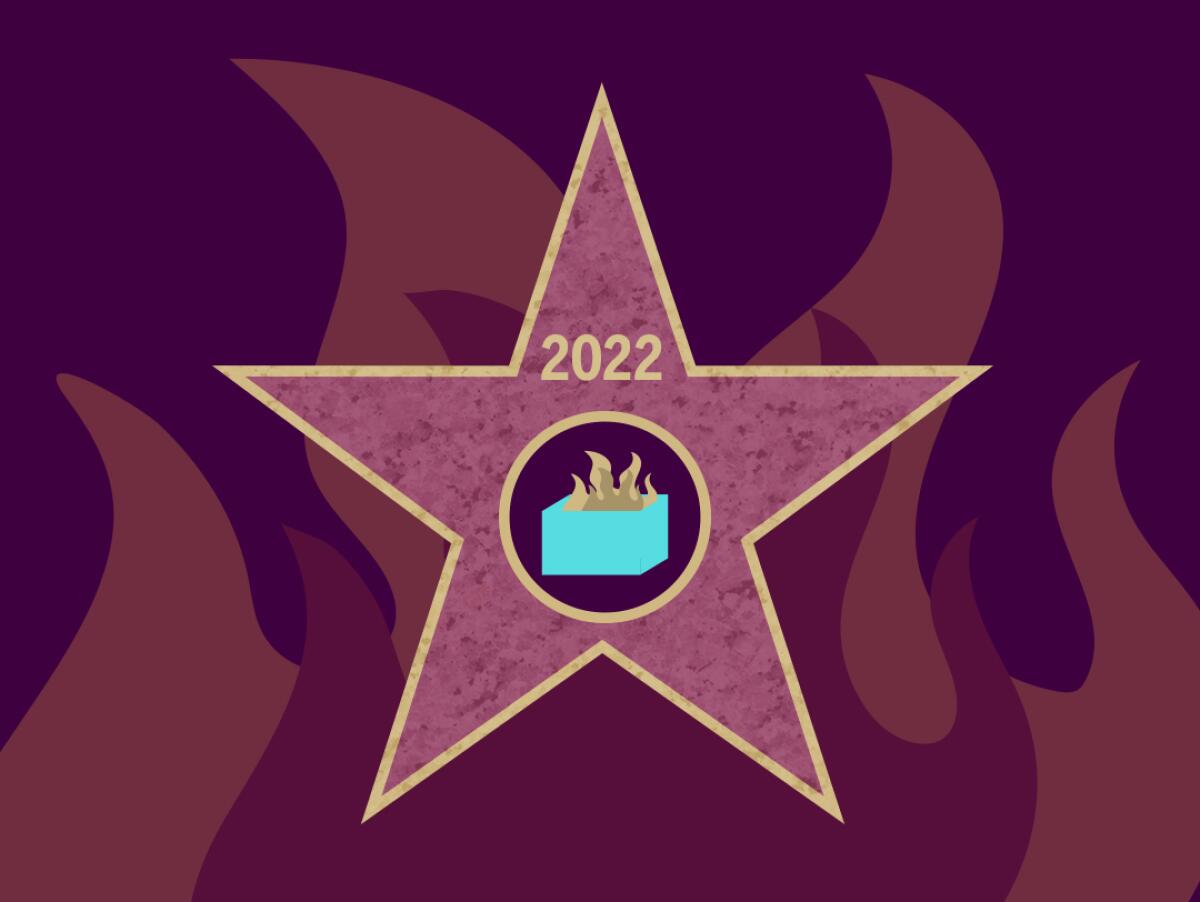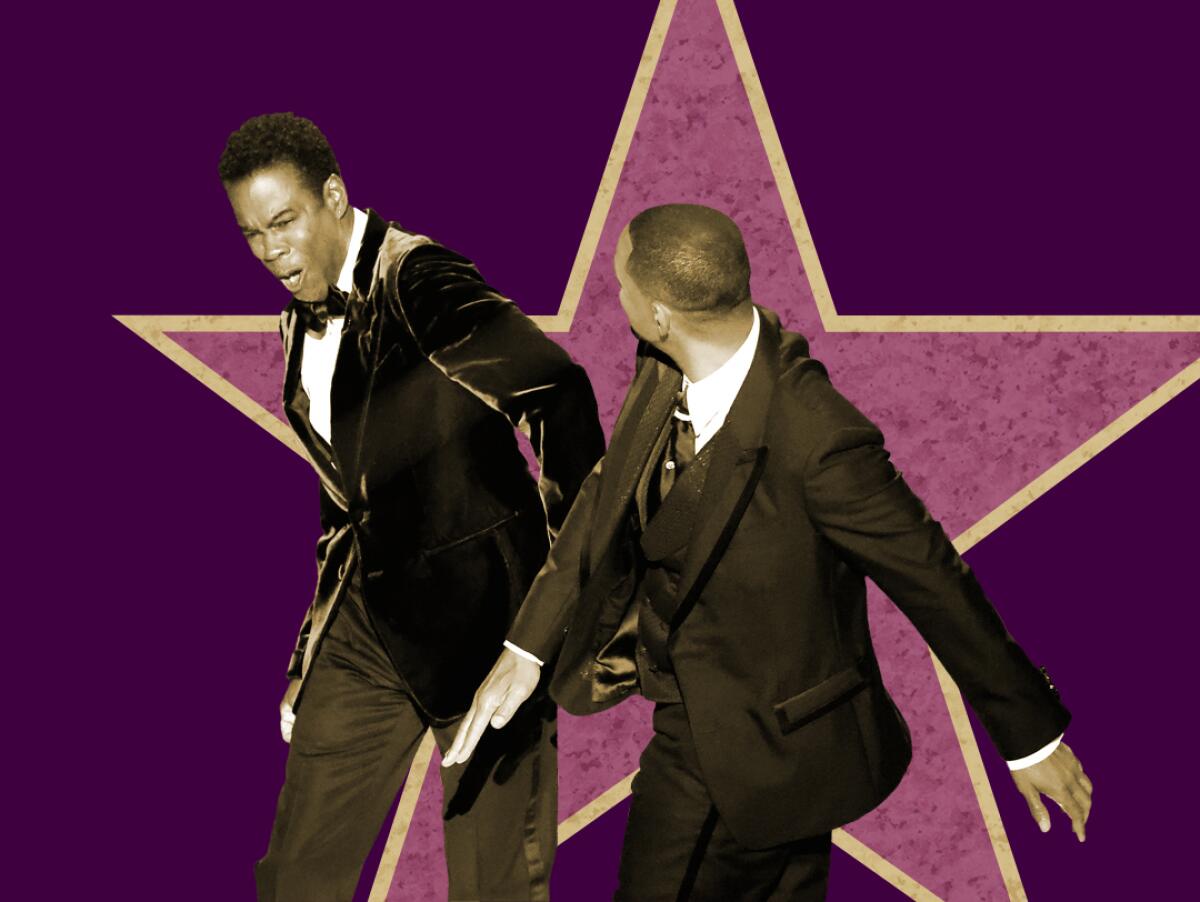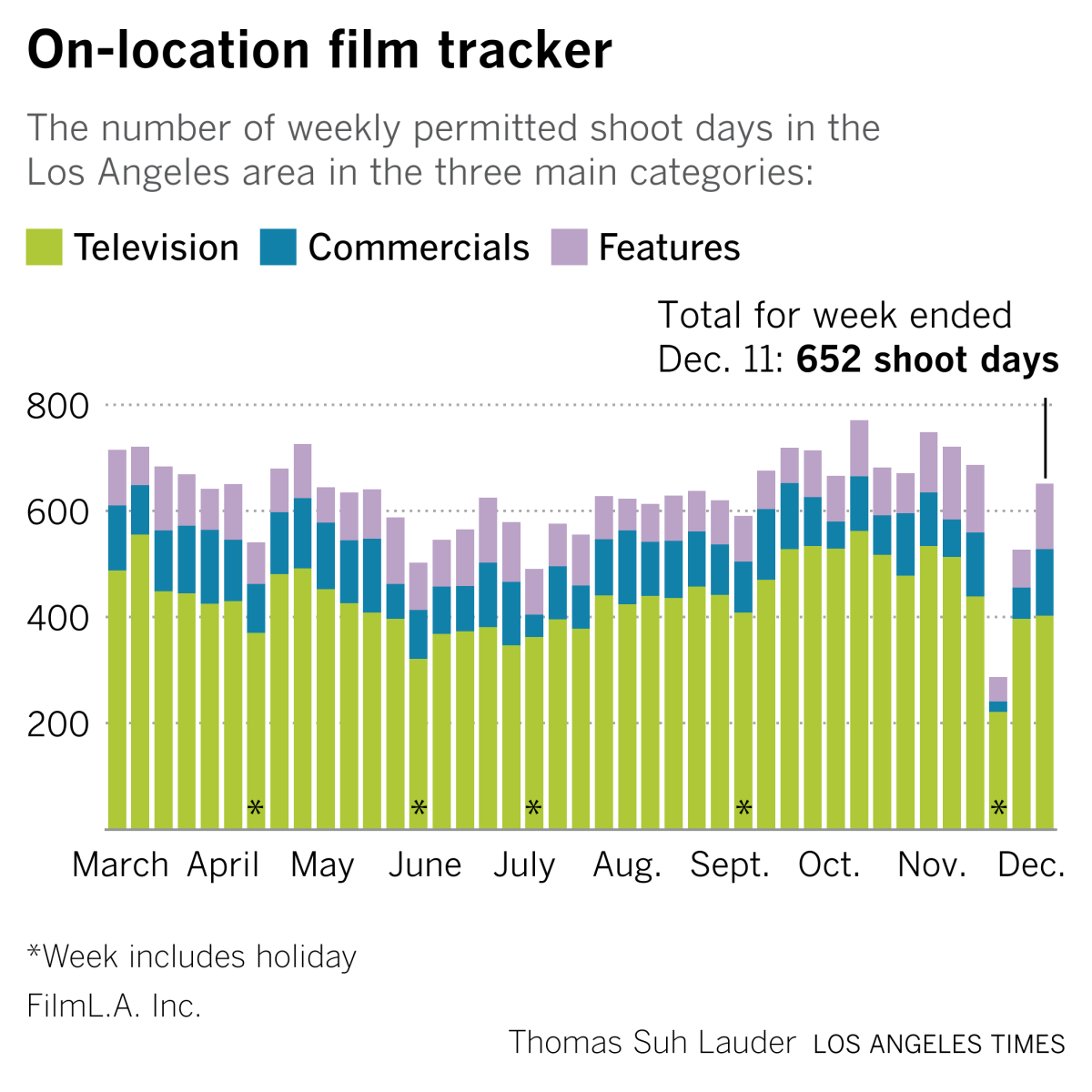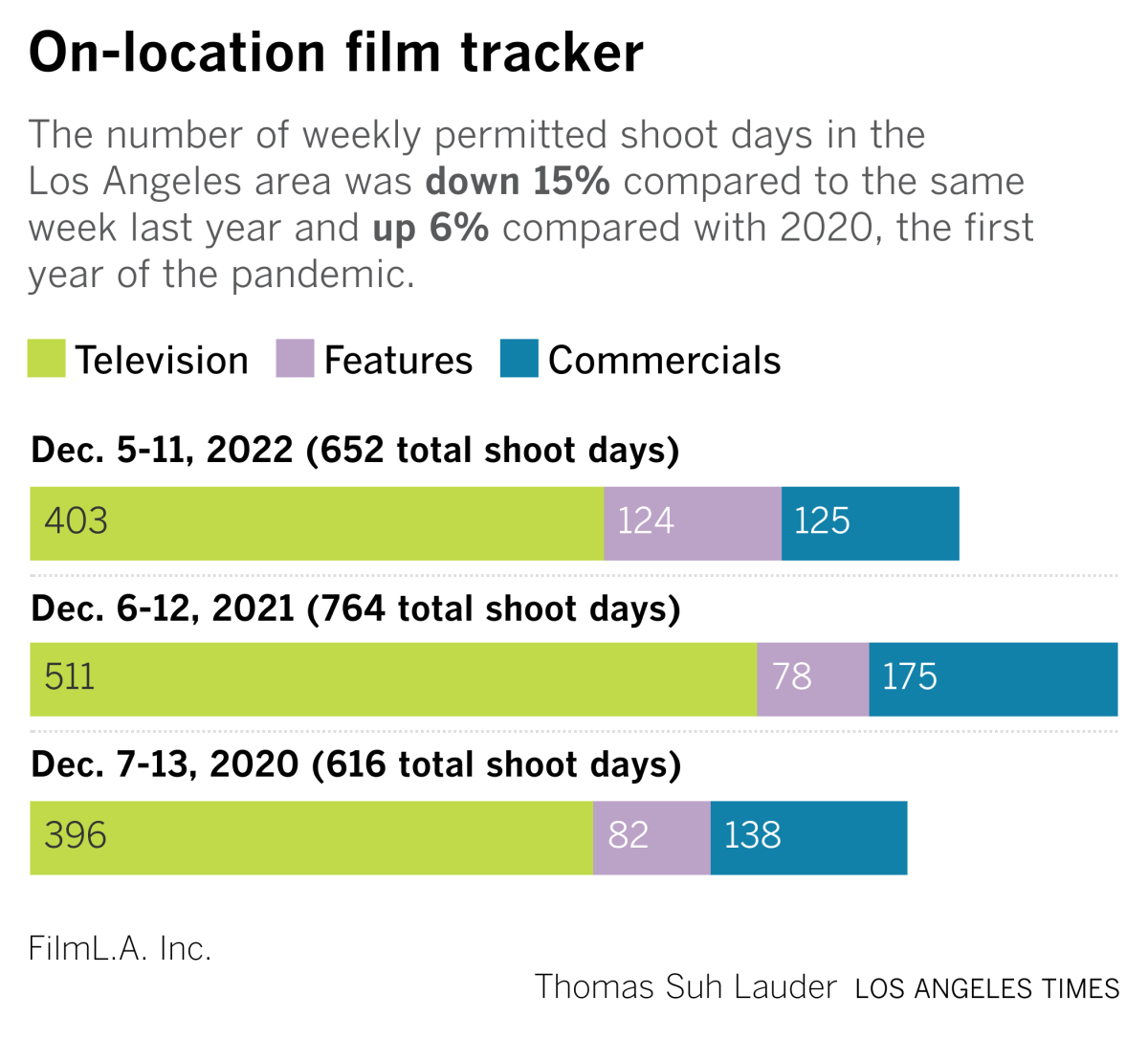The top 10 Hollywood fiascoes that defined 2022 for the entertainment business

Welcome to the Wide Shot, a newsletter about the business of entertainment. Sign up here to get it in your inbox.
Welcome to mid-December, when Hollywood basically shuts down for everyone but awards season prognosticators. The Golden Globes are back, Brad Pitt’s company has a new owner, Disney+’s ad-based tier launched, New York Times journalists went on a 24-hour strike, Jason Kilar’s writing in the Wall Street Journal and no one knows what’s going on with DC Studios. Send me your box office predictions for “Avatar: The Way of Water.” As business activity slows to the speed of cold gravy, let’s look back on the biggest controversies and blow-ups of 2022.
The year in fiascoes
Hollywood’s business model is in disarray, social media has broken our brains and people across the industry are worried about their jobs. That’s a recipe for turmoil in the business of entertainment. We had plenty of material this year, so let’s get into it.
Neil Young vs. Joe Rogan
The “Heart of Gold” rocker’s protest against and Spotify over Joe Rogan and COVID-19 vaccine misinformation was an archetypal battle to start the year — a collision of celebrity, public health, free speech absolutism, business incentives and inescapable online-ness. Young’s boycott, joined by Joni Mitchell and Young’s old Crosby, Stills, Nash & Young bandmates, started with the COVID-19 doubts spread on Rogan’s podcast. But the imbroglio quickly spread to a variety of complaints. Rogan’s use of the N-word. Royalties. Audio fidelity.
The outcomes were mixed. Music’s heaviest hitters remained on Spotify. CEO Daniel Ek stuck by Rogan, while promising to affix labels to all podcast episodes that contain a discussion of COVID-19, accurate or not. In the wake of all this, Spotify subscriptions increased and we all ended up sharing our Spotify Wrapped end-of-year playlists, just like last year.
The Slap

Nobody was talking about the Oscars until everyone was, and for all the wrong reasons. Will Smith’s storming of the Dolby Theatre stage became the defining cultural moment of the year, while totally eclipsing the best picture winner (“CODA.” Remember that nice movie?) and Smith’s own triumph as the night’s lead actor honoree. Was it a story about toxic masculinity? Bottled rage? Black women’s hair? The limits of comedy?
After some delay by the Academy, Smith was banned from the awards ceremony for 10 years, but the apology tour officially began, doubling as a promotional campaign for Apple’s Antoine Fuqua slavery drama “Emancipation.” Meanwhile, Chris Rock seems to be doing fine, having signed a deal to headline Netflix’s first livestreamed comedy show. That might get better ratings than the next Oscars telecast.
Disney and ‘Don’t Say Gay’
Bob Chapek didn’t want Disney to become a “political football.” But Disney’s then-CEO forgot that the company has always been one, creating the migraine to end all headaches for the Burbank entertainment giant. Chapek’s reticence to speak out against Florida’s law, which restricts classroom discussion of sexual orientation and gender identity, led to weeks of protests from employees. When Chapek later denounced the law, Florida Gov. Ron DeSantis and right-wing media figures seized the chance to blast Disney as a “woke” corporation.
We’re still seeing the effects. Disney lost its self-ruling privileges in the area that encompasses Walt Disney World Resort. Chapek lost his job, with the “Don’t Say Gay” snafu being just one of many critical missteps. Perhaps most consequentially, the incident raised DeSantis’ national profile. The governor easily won reelection in a midterm race that otherwise didn’t go as well as expected for Republicans. See you in 2024.
Wall Street turns on streaming

Media investors were once deeply in love with streaming. Entertainment companies chased Netflix into the direct-to-consumer future, spending billions on content to attract subscribers to their “plus”-es and “max”-es. Subscriptions soared during the COVID-19 pandemic shutdowns. So did stock prices. But at some point, investors thought, it might be nice if these services actually made money.
Disappointing Netflix earnings gave investors the spins. Losses piled up for Paramount+, HBO Max, Peacock and Disney+ as their parent companies poured resources into straight-to-steaming movies, TV shows, technology and marketing. Streaming continued to cannibalize profitable pay-TV businesses and box office revenues. That, plus weakness in the advertising market and economic factors like inflation, has led to high level executive shakeups (AMC Networks’ CEO lasted less than three months) and massive cost-cutting. Expect a wave of consolidation in 2023.
Zas swings the axe
No company defined the streaming industry’s vibe shift better than Warner Bros. Discovery, where CEO David Zaslav has been on a cost-slashing spree in his quest to find more than $3 billion in savings. In an effort to undo the sins of WarnerMedia’s previous owner, AT&T, Zaslav has embarked on a quest for cash flow, which, in practice, has meant more than 1,000 layoffs at Warner Bros., CNN, cable networks and other divisions.
There were the standard-issue post-merger regime change decisions (Toby Emmerich out, Michael De Luca and Pamela Abdy in). The DC franchise is in flux, with new leadership. But more broadly, streaming would no longer be a win-at-all-costs business for the Warner properties.
Faced with a new mandate, Warner Bros. killed a $90-million “Batgirl” movie and HBO Max canceled shows including “Gordita Chronicles.” A popular pipeline program for new writers and directors was killed. Until it wasn’t. Luckily Warner Bros. didn’t have any other problems.
Off-screen drama
Some stars and filmmakers couldn’t stop getting in their own way and giving their studio minders grief. Ezra Miller’s antics landed him in serious legal trouble. In October, he pleaded not guilty to felony burglary in Vermont. But his upcoming DC movie, “The Flash,” is still on the schedule for next year. In fact, Warner Bros. moved it up a week. Will the backstory matter to audiences? Who knows.
Rumors of personal drama overshadowed the press tour for Olivia Wilde’s “Don’t Worry Darling,” with an alleged behind the scenes tiff between Wilde and star Florence Pugh spilling into headlines. Crew members denied the feud. There was added intrigue about an on-set romance between Wilde and Harry Styles, a custody battle between Wilde and Jason Sudeikis, a made-up spitting incident involving Styles and Chris Pine and a spat between Wilde and ex-cast member Shia LaBeouf. Despite — or because of — all that, the movie ended up doing fine at the box office.
Depp vs. Heard

In a year full of ugly trials involving Hollywood figures, the defamation battle between Johnny Depp and his ex-wife Amber Heard was the cultural black hole from which no light could escape. There was endless discussion of the broader implications, some of it constructive, much of it not. It was a dark moment for survivors of abuse, with so much online vitriol being slung, mostly at Heard. That’s true whatever people think of the outcome of the trial itself.
Rather than serving as a referendum on the #MeToo movement, the trial was mostly a public excavation of a deeply troubled relationship, providing so much fodder for aspiring pundits and legal influencers. Depp, for whom this was a chance to clear his name and get his career back, was the ostensible winner. The “Pirates of the Caribbean” actor got a $10-million jury verdict. But no one came out of this looking good.
Kanye flies a swastika
Once a brilliant rapper known for merely erratic behavior, Kanye West became a full-on Hitler apologist, a transition exemplified by an interview with conspiracy theorist Alex Jones and a buddy-buddy relationship with white nationalist Nick Fuentes. Ye’s descent into antisemitism has lost him his CAA representation, his Adidas sneaker deal and, with it, his billionaire status.
Fans were previously willing to overlook Ye’s incoherent politics because of the music. “The College Dropout,” “Late Registration,” and “Graduation” are classics. But Ye’s embrace of anti-Jewish rhetoric has left many to mourn for the West they thought they once knew.
Taylor vs. Ticketmaster
You don’t want Taylor Swift fans angry at you. Especially if your company has already been criticized as a living argument for stronger antitrust regulation.
The Bob Swap
Disney’s year-end shake up could hardly have been more dramatic, with Chairman Susan Arnold reaching out to Iger on a Friday and the board bouncing Chapek on a Sunday night, as a high-profile Elton John concert at Dodger Stadium was about to livestream on Disney+.
Iger’s return was broadly hailed by Disney employees and Hollywood creatives. But Disney’s failure at succession planning (Chapek was Iger’s own pick for CEO) was symbolic of a larger problem for the company, which historically has not excelled at transferring power. In the vacuum of obvious successors, we can expect some Machiavellian political gamesmanship in the next couple years. Assuming Iger actually steps down when he says he will.
Honorable mentions:
- Dave Chappelle attacked at the Hollywood Bowl.
- KTLA anchor Mark Mester fired after on-air rant.
- #MeToo trials collide.
- Ari and Elon on the yacht.
- Harvey Weinstein’s “She Said” box office punditry.
- The “Bros” bomb blame game.
- The failed publishing megadeal.
- The Jeff Zucker-CNN debacle.
- The doomed push for greater on-set gun safety.
- The celebrity crypto bubble bursts.
For the record: Last week I misspelled the last name of child star Lora Lee Michel.
Stuff we wrote
— ‘Law & Order: SVU’ showrunner accused of mistreating women, support staff on multiple shows. My colleague Stacy Perman last week published a deep dive on the career of “SVU” boss David Graziano, which includes a long trail of allegations of troubling behavior. People who spoke to The Times “described him variously as a volatile and bullying boss who rage-fired underlings, left staffers in tears and made inappropriate and demeaning comments toward women, support staff and people of color,” Perman reported.
Graziano’s rep said the producer was “proud of his leadership skills on SVU,” adding that there has been no turnover in the production offices on the show since he took over almost six months ago. “The implication that Mr. Graziano created a hostile work environment, or is sexist, inappropriate and unprofessional is false,” his spokesperson said.
— Watch out, Reese Witherspoon: On NBC’s “Today,” Jenna Bush Hager is becoming book publishing’s best friend. The former first daughter is a tastemaker with #ReadWithJenna.
— ICYMI. Legal fight over ‘Back to the Future’ car the DeLorean revs up. Inside Trevor Noah’s tearful goodbye to ‘The Daily Show.’ ‘Black Panther’ No. 1 in week No. 5.
Number of the week

Things are getting weird for the DC film universe as James Gunn and Peter Safran line up their plans for the franchise. Superhero stars — Henry Cavill and Gal Gadot — have been campaigning for their roles on social media, hoping for that #RestoreTheSnyderverse bump. But nothing has been quite as odd as the competing stories in the Hollywood trade press over whether or not Dwayne Johnson’s “Black Adam” made money.
Variety reported the film stood to lose as much as $100 million from its $390-million box office run. Deadline responded with the producers’ view: that, actually, the movie would profit by $52 million-to-$72 million, counting home video and TV revenues.
Johnson, who wants a sequel to his $195-million passion project, was happy to tweet the Deadline story to his fans. Break out that tequila. Still, a $52-million profit after ancillaries isn’t exactly what you’d expect from a superhero movie staring the Rock.
Film shoots
Los Angeles shoot days recovered from the post-Thanksgiving holiday doldrums, but were still down from a year ago.


Finally ...
I talk about my favorite things a lot, but why not go to the real experts? Check out our critics’ picks for the best albums, songs, TV shows, books, performances and dance sequences of 2022. Let me lend a quick “ditto” to Mikael Wood’s endorsement of Alvvays’ latest record, “Blue Rev,” a collection of infectious dream-pop songs. Wood calls it “the year’s finest guitar album.” He’s not wrong.
Inside the business of entertainment
The Wide Shot brings you news, analysis and insights on everything from streaming wars to production — and what it all means for the future.
You may occasionally receive promotional content from the Los Angeles Times.




